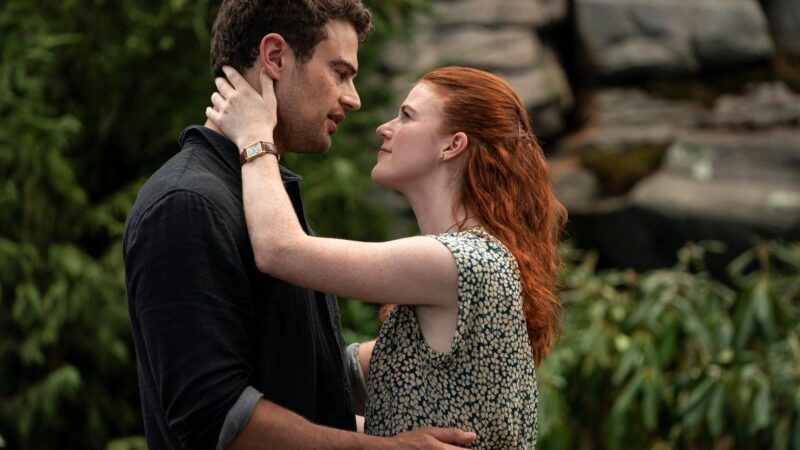Romance and Sci-Fi Tangle in The Time Traveler's Wife
The latest attempt to adapt the novel comes as an HBO miniseries.

The Time Traveler's Wife. HBO. Sunday, May 15, 9 p.m.
When Audrey Niffenegger's novel The Time Traveler's Wife appeared in 2003 (and became a monstrous hit, selling over seven million copies at last count), with a plot that you can pretty much deduce from the title, critics had a hard time figuring out whether to call it science fiction or romance.
This tale of an oft-thwarted love affair between a guy who bounces around time like a pinball and a girl who doesn't has plenty of the ruffles and flourishes (if not the insipid cliches and gag-me-with-an-axe longing looks) that frame chick lit. But it was also chockablock with the puzzling, mobius-strip style paradoxes of classic time-travel stories.
I never read the book or saw the much-maligned 2009 film based on it. But I'm sure HBO's new six-hour adaptation of the book will reignite the issue.
The time traveler of the title is Henry DeTamble (British TV actor Theo James), a rugged-looking librarian with a genetic proclivity for, without warning, tumbling 20 or 30 years into the past or future. He might return minutes or hours or days or years later, the thread of the conversation or coitus irretrievably interruptus.
The interruptee is Claire Abshire (Rose Leslie, Game of Thrones), an artist who, when the story begins—sort of, because in a story with as much time travel as this one, words like "begins and "ends," and don't let's get started on "now" or "then," are pretty slippery—is just a child of 7 years.
A naked, vomiting, 30-something man comes plummeting into the trees of a forest near her home to advise her that they'll be married someday, and to hide a set of clothing near this particular spot for his future visiting, since time travel always leaves him nude and nauseous.
Frequent visits follow—152 over the next 14 years, to be precise—but the relationship of Claire and Henry is slow to blossom. Mostly that's because she can never be quite sure which version of Henry will show up. Will it be the 40ish one who knows that they're destined for marriage? Or a 20ish one who thinks of her mostly as a companionable little girl?
The idea of different chronological variants of the same character wandering the same timeline would be a forbidden paradox in most time-travel tales. But The Time Traveler's Wife embraces it. Because highly emotional moments in his life act as a kind of magnet for Henry's temporal tumbles, there are certain moments—the awful ones, mostly, like the death of his mother—where there are as many as 20 versions of him looking on, all as dumbstruck with horror as they were the first time they witnessed it.
The different Henrys often meet to confer about tricks of the time-travel trade, which mostly involve neither superpowers nor butterfly-effect alterations of history. Most of what Henry knows about time-traveling he learned from older versions of himself. A lot what you've come to expect of time-travel stories can't happen in this one. Because Henry mostly travels the timeline of his own life, there's no chance of dropping onto the deck of a doomed ocean liner, the sixth floor of the Texas Book Depository, or the cave of a hungry Morlock.
That doesn't mean there's a lot of down time. "What do we do?" wonders 7-year-old Henry. "We're time travelers. Do we solve crimes?" Replies 28-year-old Henry: "We don't solve crimes, we commit them. We run, we steal, we fight." That comes of the circumstances of their time travel rather than moral weakness; there are a surprising number of circumstances in which appearing out of nowhere, stark naked, requires considerable fisticuff skills. All in all, the older Henry reflects sourly, "It's not a superpower. It's a disability."
Even more so for Claire. Though the early scenes with her are rom-com-ishly amusing and even charmingly sweet—the chemistry between Leslie and James practically glows—there's a growing melancholy as she realizes that time travelers divide their world into tomorrow and yesterday, without much regard for "now."
"I grew up waiting for you," Claire protests to Henry. "I formed myself around you. … I kissed a frog and he stayed a frog." If she knew what sometimes trickles home behind Henry on return from the future—a clotted morass of blood—her annoyance would turn to horror. Something's coming. Something wicked.



Show Comments (13)